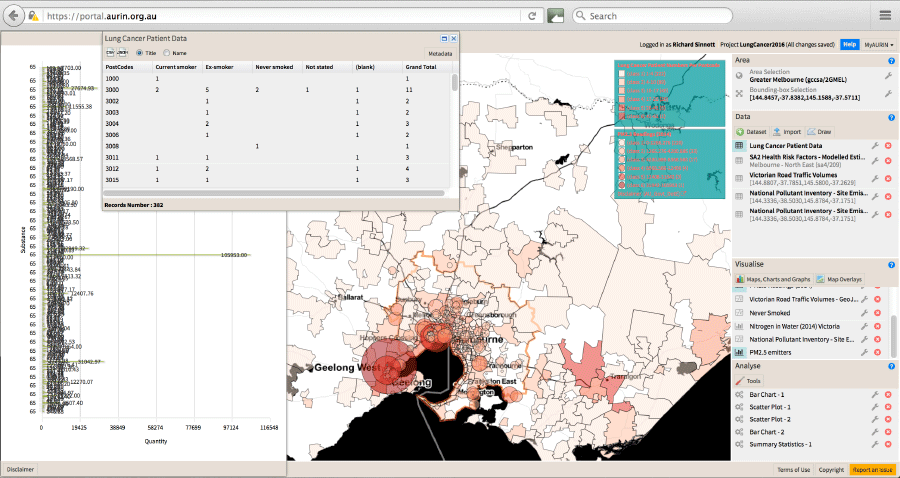Combined data adds power to decision-making
The difference between ‘data’ passively stored in an electronic archive and ‘information’ that actively supports decision-making and research outcomes is massive.
Converting data into information is the mission of the information technology solutions engineered by Professor Richard Sinnott, director of eResearch at the University of Melbourne’s School of Computing and Information Systems.
The university’s eResearch initiative is the world’s go-to team for bespoke, rapidly built data-handling systems that have a strong track record boosting clients’ access to and use of diverse of datasets.
Professor Sinnott’s IT solutions work across a spectrum of operating requirements.
At one end are independent, web-front databases designed to better collate, interrogate, secure and share data about a specific subject.
For example, clinicians dealing with poorly understood or extremely rare diseases have used his solutions to search databases globally for relevant information. This includes a project sharing data for adrenal tumours that access host data from more than 100 hospitals worldwide, supporting more than 25 international clinical trials.
At the other extreme, he works with information technology systems that collate, or “mash up”, information from unrelated databases. The biggest example is the Australian Urban Research Infrastructure Network (AURIN). Built for the Australian Government, it provides a single online gateway to more than 2000 of the most up-to-date, definitive datasets from more than 70 major Commonwealth and state government organisations, industry and academia.
Peter MacCallum Cancer Centre researchers are among thousands of AURIN users. They are mapping occurrences of lung cancer in children against traffic data from VicRoads, air-quality data from the Environment Protection Authority and pollution levels from the National Pollutant Inventory.
By combining large-scale data from multiple sources, you can visualise the relationships between data so that researchers can explore potential causal relationships to all kinds of disease.
Professor Richard Sinnott
